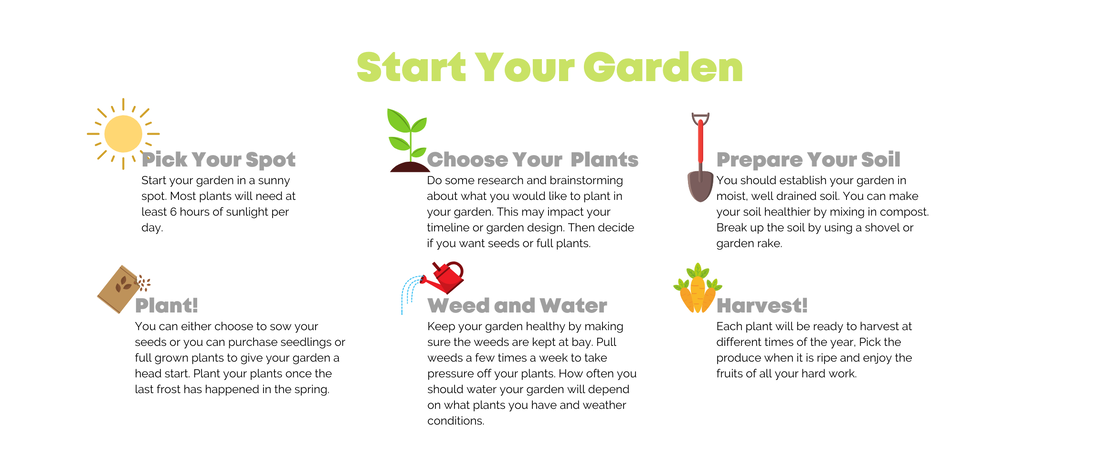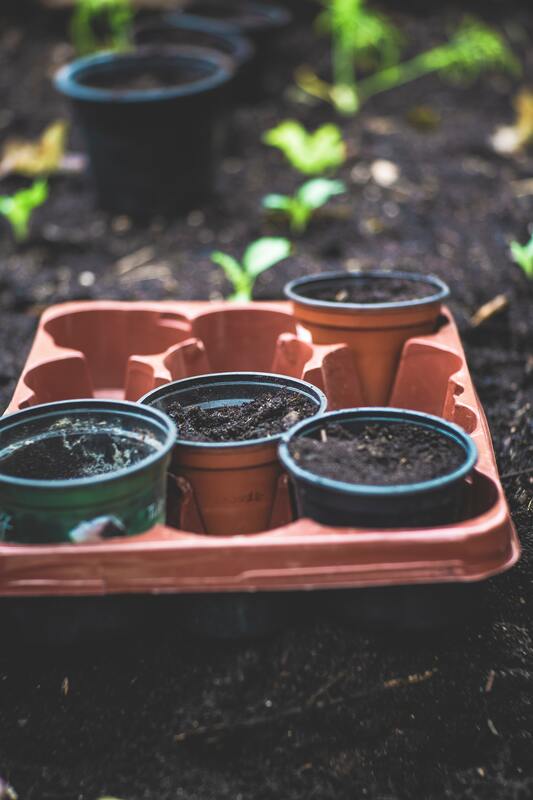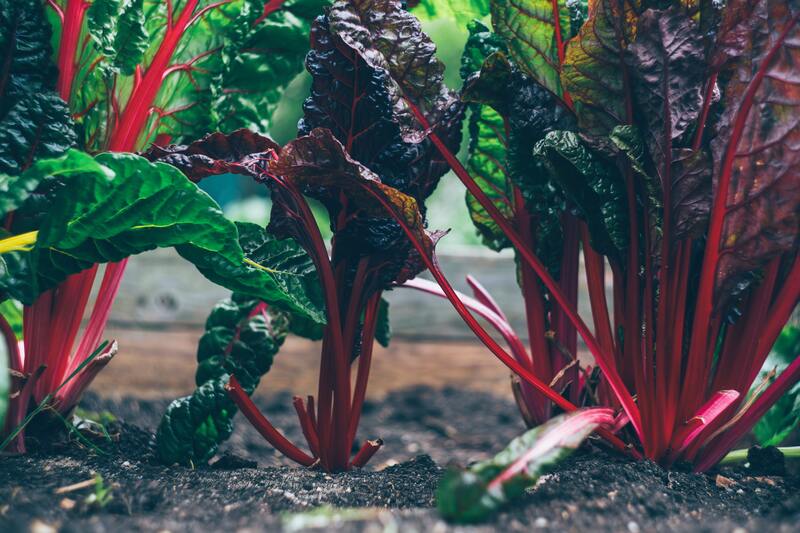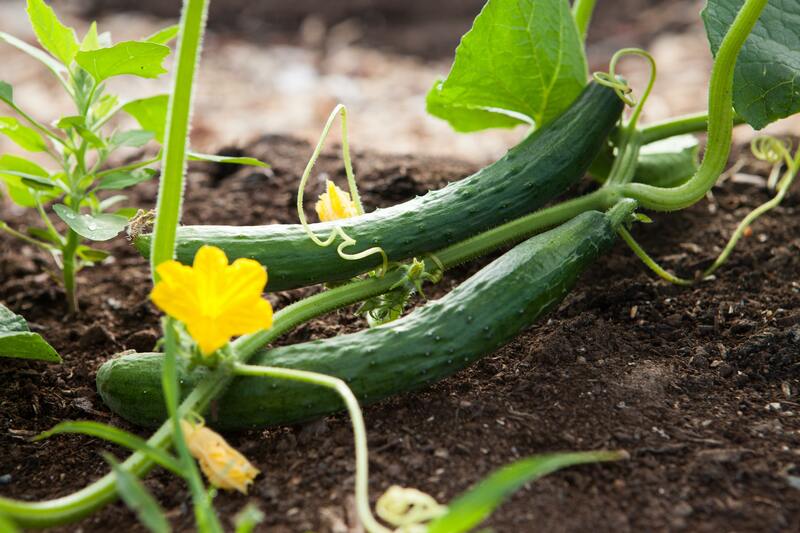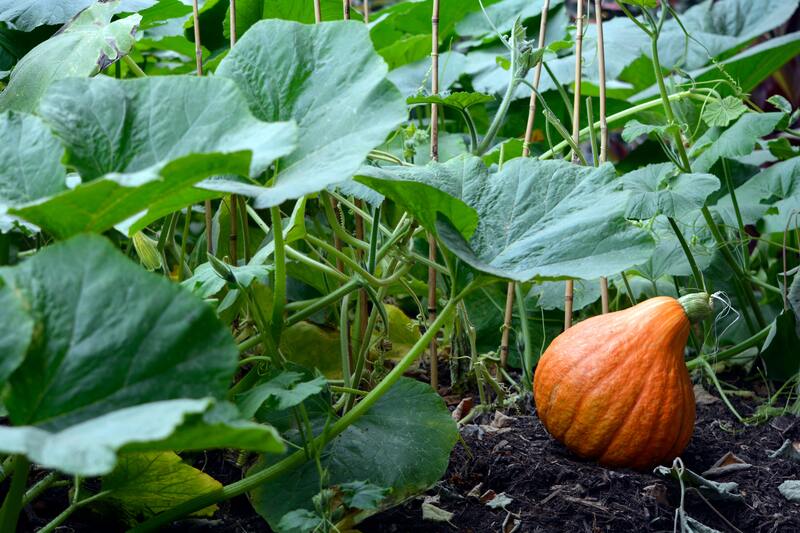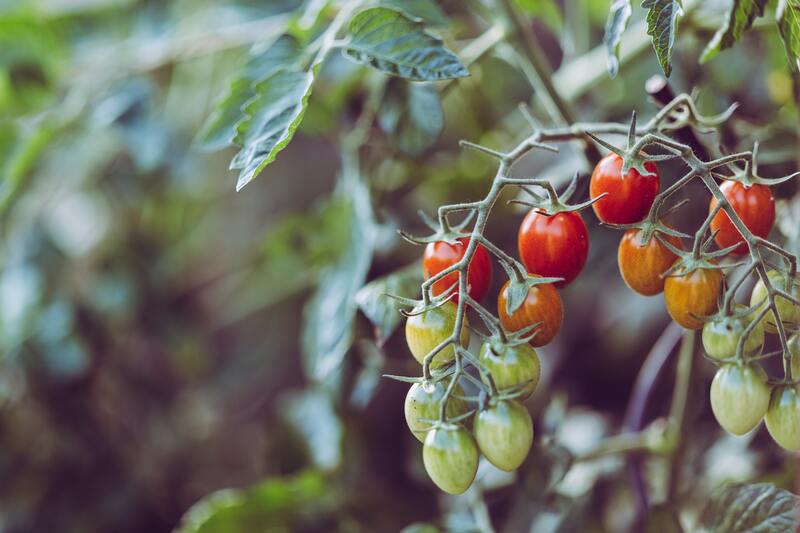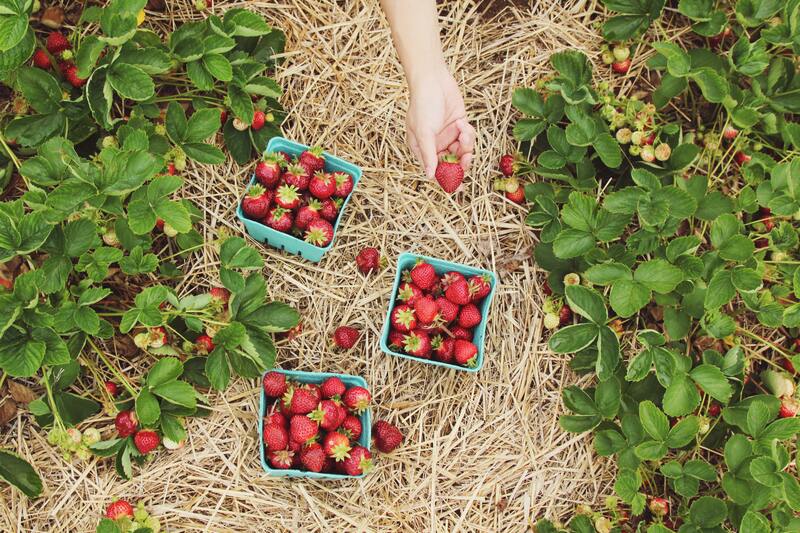Yard to Table
You can grow bountiful crops of fruits and vegetables right in your backyard! By establishing a garden in yard, you will have access to fresh produce throughout the growing season. Much of the produce sold in our grocery stores is grown thousands of miles away. A garden in your backyard can help you reconnect with your food and reduce your carbon footprint!
Growing a garden is easy. All you need is a nice patch of soil, a solid amount of sun and some seeds.
Growing a garden is easy. All you need is a nice patch of soil, a solid amount of sun and some seeds.
Organic Gardening
|
Conventional Gardening
|
What Is Organic?
Defining "organic" is tough. The word is used in many ways and is defined differently by different organizations and industries. We like to think of an organic garden as utilizing the natural cycles and pathways of the garden to grow a robust yield, instead of relying on synthetic chemicals. Instead of using synthetic fertilizer to boost your soil productivity, you should elect to use compost instead. If pests become a problem, you can use a variety of methods that don't involve spraying pesticides or other chemicals. If you run across a problem in your garden, there is a good chance an organic method can help fix the problem!
Getting Started
Each garden will look a bit different. This will be dependent on location, resources and what you want to grow. On the smaller scale, you can plant a garden in a few pots or window boxes. If you have a yard or other outdoor community green space, you will be able to establish a large garden which can grow more than a hundred pounds of produce per growing season. Although it can be time-intensive when you are first getting started, fear not; once your plants are planted, you can grow tons of food with just a little work. Explore the resources below to get some more information about how to establish your garden!
Organic Practices
Organic gardening stands apart from conventional gardening because as an organic gardener you are making intentional choices to go the holistic route. Keeping some of the key organic principles in mind when you are gardening will help you establish the best garden possible.
- Pull weeds by hand instead of tilling. Tilling the soil damages soil structure.
- Use compost as fertilizer instead of store bought fertilizers.
- Utilize the wonderful benefits of companion plants like marigolds and cover crops like rye or buckwheat.
- Plant a diversity of plants to increase the biodiversity of your garden.
- Rotate where you plant your plants which will prevent nutrient depletion.
- Plant native wildflowers for pollinators. These pollinators will help your garden thrive.
- You can make DIY organic fertilizers, pesticides or fungicides at home.
Your Garden Timeline
January: Take it easy in January! Your garden isn't needing too much love right now. Sit back and dream of spring.
February: In early February you should start brainstorming your garden design. Think about what plants you want to grow and where your garden will be located. Once you have decided what plants you want to grow, you can start growing seeds indoors in mid February (exact dates will depend on types of plants). You can also get to know your soil during this time. Get a soil test kit (from your local UT Agricultural Extension). Understanding the baseline health of your soil will help you get intimately acquainted with your garden.
March: If you started seedlings last month, just keep your eye on them. In March, you can start getting outside and really designing or establishing your garden. Consider building raised beds or clear out a new area and begin preparing your soil once the ground has thawed. You can amend or improve your soil by adding compost to your garden bed (about 1-2 inches per 3-5 inches of topsoil). If you are starting a raised bed, it can be made up of no more than 30% compost. You can also prepare your soil by covering it with a plastic covering; this will keep weeds at bay and warm up your soil a bit (plants love warm soil). If you planted any cover crops, this would be a good time to remove those. They have protected your soil all-winter long. In late to mid March you can start transplanting seedlings into your garden. Check your growing zone to make sure you are planting the right seedlings at the right time.
April: In April, plant more of those seedlings or transplants. Your garden is taking shape! Weeds may begin infiltrating at this time, so be vigilant and keep your plants happy by pulling weeds.
May: If you planted any cool-season crops, they should be ready to be harvested now! Early May is also a great time to construct an irrigation system. Consider some kind of drip irrigation to reduce water use. Throughout May, make sure to keep pulling those weeds and planting any other seedlings or transplants.
June: Your main goal in June is to protect your garden from weeds, pests and drought. Pull weeds by hand to take pressure off your seedlings. By planting marigolds or other companion plants, you help deter pests and bring pollinators in! Mulch around plants to help them retain moisture and suppress weeds. Some plants may be ready to harvest, too.
July: Keep up your garden maintenance of weeding, watering and harvesting. If you are thinking of planting a fall garden, this is the best time to start planning.
August: Many plants will be ready to be harvested now. Keep your eyes peeled for ripe produce! Explore new recipes for which you can use your produce. You can start seeds for your cool-season crops like broccoli, cauliflower and kale.
September: Most of your harvesting should be completed by now. You can then switch your attention to your cool-season garden bed and begin cleaning out your warm-season beds. You can transplant your cool-season seedlings to your cool-season bed. Consider adding a layer of compost to give them a boost and to deter weed growth. Clear out your warm-season garden bed by removing any plants which are no longer producing. If you don't already have a compost pile, this is a great time to start one. You can learn more about compost and our compost program here. Composting in your backyard is a great way to reduce waste and provide yourself with some nutrient rich organic material.
October - December: This is a pretty quiet time in your garden. Depending on weather, you may still be able to transplant your cool-season crops. During fall and early winter you can take a break from the gardening grind!
February: In early February you should start brainstorming your garden design. Think about what plants you want to grow and where your garden will be located. Once you have decided what plants you want to grow, you can start growing seeds indoors in mid February (exact dates will depend on types of plants). You can also get to know your soil during this time. Get a soil test kit (from your local UT Agricultural Extension). Understanding the baseline health of your soil will help you get intimately acquainted with your garden.
March: If you started seedlings last month, just keep your eye on them. In March, you can start getting outside and really designing or establishing your garden. Consider building raised beds or clear out a new area and begin preparing your soil once the ground has thawed. You can amend or improve your soil by adding compost to your garden bed (about 1-2 inches per 3-5 inches of topsoil). If you are starting a raised bed, it can be made up of no more than 30% compost. You can also prepare your soil by covering it with a plastic covering; this will keep weeds at bay and warm up your soil a bit (plants love warm soil). If you planted any cover crops, this would be a good time to remove those. They have protected your soil all-winter long. In late to mid March you can start transplanting seedlings into your garden. Check your growing zone to make sure you are planting the right seedlings at the right time.
April: In April, plant more of those seedlings or transplants. Your garden is taking shape! Weeds may begin infiltrating at this time, so be vigilant and keep your plants happy by pulling weeds.
May: If you planted any cool-season crops, they should be ready to be harvested now! Early May is also a great time to construct an irrigation system. Consider some kind of drip irrigation to reduce water use. Throughout May, make sure to keep pulling those weeds and planting any other seedlings or transplants.
June: Your main goal in June is to protect your garden from weeds, pests and drought. Pull weeds by hand to take pressure off your seedlings. By planting marigolds or other companion plants, you help deter pests and bring pollinators in! Mulch around plants to help them retain moisture and suppress weeds. Some plants may be ready to harvest, too.
July: Keep up your garden maintenance of weeding, watering and harvesting. If you are thinking of planting a fall garden, this is the best time to start planning.
August: Many plants will be ready to be harvested now. Keep your eyes peeled for ripe produce! Explore new recipes for which you can use your produce. You can start seeds for your cool-season crops like broccoli, cauliflower and kale.
September: Most of your harvesting should be completed by now. You can then switch your attention to your cool-season garden bed and begin cleaning out your warm-season beds. You can transplant your cool-season seedlings to your cool-season bed. Consider adding a layer of compost to give them a boost and to deter weed growth. Clear out your warm-season garden bed by removing any plants which are no longer producing. If you don't already have a compost pile, this is a great time to start one. You can learn more about compost and our compost program here. Composting in your backyard is a great way to reduce waste and provide yourself with some nutrient rich organic material.
October - December: This is a pretty quiet time in your garden. Depending on weather, you may still be able to transplant your cool-season crops. During fall and early winter you can take a break from the gardening grind!
Other Resources
MIGardener- He is an organic gardener who creates awesome educational videos.
Farmers' Almanac- An oldie but a goodie. You can get the book or just surf the website. The Farmers' Almanac has great information.
Grow Organic- You can buy seeds and watch "how to" videos on this website.
Native Tennessee Plants
Farmers' Almanac- An oldie but a goodie. You can get the book or just surf the website. The Farmers' Almanac has great information.
Grow Organic- You can buy seeds and watch "how to" videos on this website.
Native Tennessee Plants

